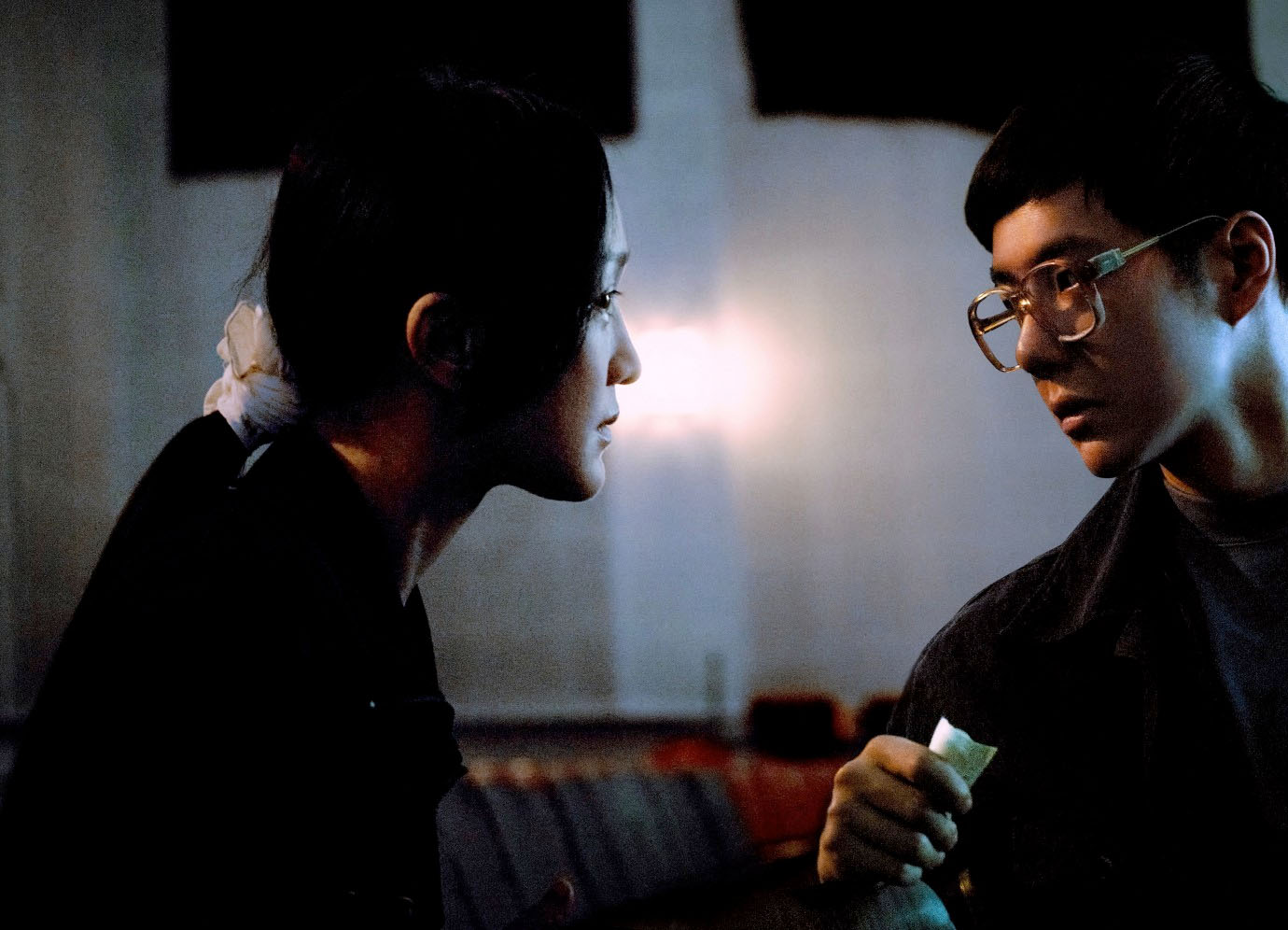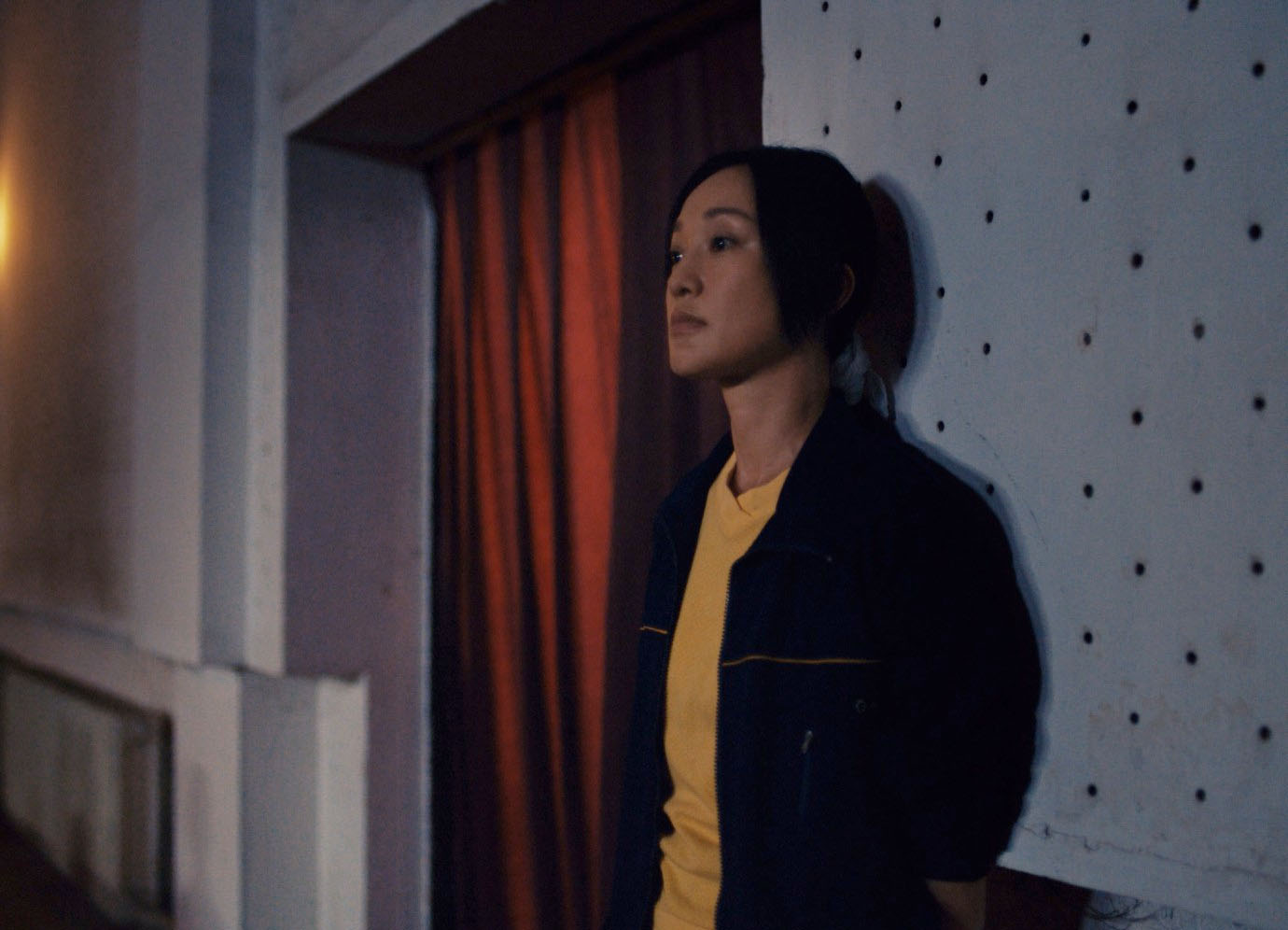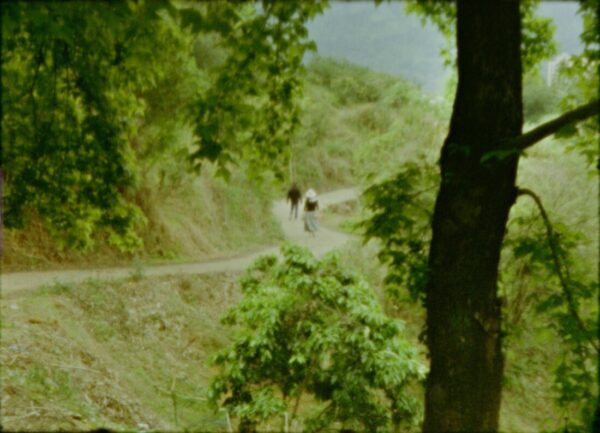Until We Meet Again
All Tomorrow’s Parties
Zhang Dalei’s throwback to the 1990 Asian Games is inherently enigmatic yet rooted in ambiguity, leaving the viewer to fill in the emotional gaps.

As the 1990 Asian Games come to an end, a sense of nostalgia hangs in the air. Zhang Dalei’s most recent short opens on a loudspeaker in the yellow spotlight of a streetlamp blaring out a speech from the closing ceremony. The last words echo over scarcely lit streets: “Do believe this is not our last farewell. A new chapter has already begun.”
All Tomorrow’s Parties is a gently told tale of parting and meeting. Through delicate film language, moments in-between dialogues are given centre stage, unfolding the story of two daydreamers. The film appears innocent at first glance but is, in fact, inherently enigmatic. Indeed, every utterance is an invitation to speculate and interpret. The aesthetic and narrative regime is hence rooted in ambiguity, an intentional degree of subtlety that leaves the viewer to fill in the emotional gaps.
Filmed with apparent ease yet carefully choreographed, the camera calmly observes Xiao Zhou’s slender silhouette as she serves soup to her frail mother before sitting down in front of the television. Entranced by the screen, Xiao Zhou starts singing along to a tune, that of the closing ceremony’s theme song, including the lyrics “Goodbye, my friend” (zai jian peng you). However, this translation falls short when it comes to the film’s narrative. These four syllables entail more than a final farewell; a more apt translation would be: “Until we meet again, my friend.”
The 1990 Asian Games were an important event for China, not only because they were the first large-scale international sporting event hosted by the country but, more importantly, because of their role in projecting a show of unity and friendship to a global audience. This was especially important if we consider that the Tiananmen massacre, which saw the repression of dissent and democracy, took place only one year earlier. The Games were a diplomatic exercise of sorts: to wipe away the stains of 1989 and, ultimately, to restore the Chinese Government’s tarnished image.
The film’s narrative takes place in the direct aftermath of the 16-day-long sporting event. A slow, continuous pan reveals a reception office. This is where Xiao Zhou works: the Qingshan Province Film Studio. Absentmindedly, she distributes tickets for a screening that evening. The young woman looks distant as she continues to hum the melody heard on TV. In this wistful scene, Xiao Zhou observes the dismantling of the Games’ mascot PanPan, a panda statue in sports attire and eyes as if it has been running on overdrive. As a symbol of peace and friendship, Pandas hold national importance in China and have been appropriated as elements of cultural propaganda. Xiao Zhou treats the giant plastic bear with similar weight, pausing in her activities to bid it farewell.
Li Mo, a young poet who just returned from travelling, waits for his friend near Xiao Zhou’s office. It is unclear who this friend is to Li Mo, and in the film’s regime of ambiguity, one is left to wonder whether their relationship goes beyond friendship. The young poet appears lost in contemplation, his gestures slow, mirrored by the camera’s gentle movements, he finds himself almost estranged from his environment.
A brief exchange between Li Mo and Xiao Zhou provides a glimpse into their distinct, yet in some ways, parallel personalities. Rather than talking to each other, they talk past each other, as we learn that Li Mo missed most of the Games because of his travels. A shared sense of longing emerges, twinned with a reluctance to return to the drudgery of everyday life.

All Tomorrow’s Parties
The pair meet again at the cinema, where a screening of Truffaut’s ‘The 400 Blows’ takes place. The scene of this French classic that is shown depicts young Antoine breaking away from a re-education institution. Yet, this choice has implications beyond a tribute to French New Wave cinema. Instead, it can be interpreted as a symbol of escape.
The juxtaposition of the Asian Games and Truffaut’s classic are two very distinct visions of art and politics. However, both the sports event and the French film create a sense of community, albeit with different intentions. Xiao Zhou and Li Mo find camaraderie in cinema, making the film studio a refuge for them both. Joined in daydreaming, they form a connection in only two brief encounters, driven by a mutual desire to escape the confines of the system.
A young woman has put aside her dreams out of a sense of family duty, and a young man has realised his views may be too idealistic. The film ends with a shot of the warmly lit cinema from outside, creating a sense of potential or of new beginnings.
While the visual finesse is captivating, this film yields meaning in repetition, inviting deeper understanding with each viewing. Set within a complex political landscape, Zhang Dalei’s film transcends the common narrative of Chinese independent cinema, which is time and again reduced to expressing political dissent. Instead, with delicate attention to detail and emotional insight, the filmmaker presents a beautifully staged escape into a bygone era.





There are no comments yet, be the first!